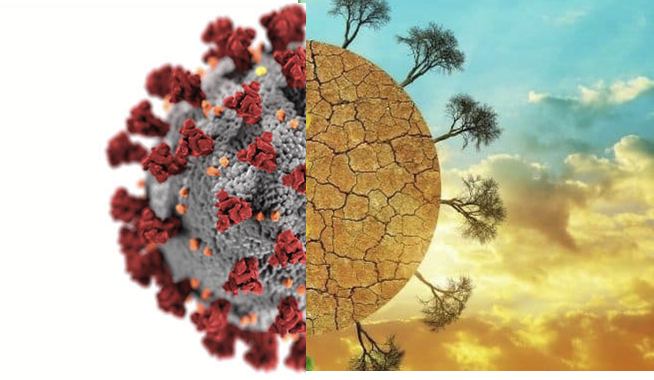(Header image: sml.snl.no/coronavirus & stock.adobe.com)
Climate crisis and systemic risks: Lessons Learned from COVID-19
Within a short period of time, the COVID-19 (Coronavirus SARS-CoV-2) pandemic has fundamentally changed our lives worldwide with massive impacts on all fundamental systems: from health and well-being to economic, financial and political systems, food production and supply chains, to education, work and social life. It demonstrates the systemic nature of risk in a highly interconnected world challenging existing governance mechanisms. Thus societies need to learn and develop new approaches of dealing with these systemic risks.
Climate change related systemic risks have the potential to be an even greater threat than those of the COVID-19 pandemic. Both crises need a global approach, both threaten reaching the Sustainable Development Goals (SDGs) and postponement makes the situation worse. In either case the poor are disproportionally affected. As with COVID-19 communication, fake news and social media play an important role, and science, technology and governance are crucial for societal resilience in face of climate change systemic risks.
Scientists from six continents working in academia, research and a diversity of organizations met at the Herrenhausen Conference Climate Related Systemic Risks: Lessons Learned from Covid-19 to debate if the systemic risk awareness gained by COVID-19 is transferable to systemic climate risks – and vice versa, and what lessons can be learned in both directions.
Follow-up
If you are interested in the topic and follow-up activities, please feel encouraged to join the Risk KAN. You can find more information and a link to register at the Risk KAN here (Subscription at the bottom of https://www.risk-kan.org/)
Contact
Please contact Dorothea Frank (MPI for Biogeochemistry, Jena, Germany) , if you have any questions in regards to the conference.
Herrenhausen Conference is funded by
Deutsche Forschungsgemeinschaft (DFG) – 427307986
